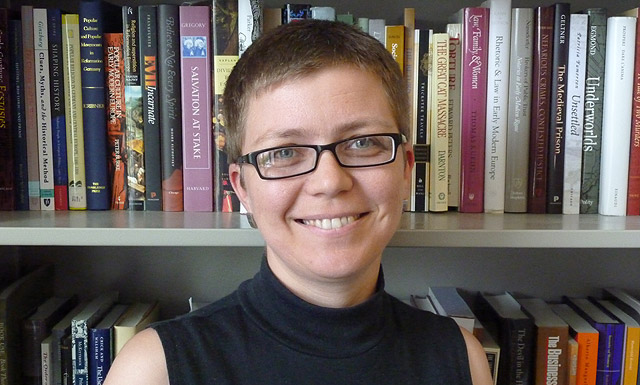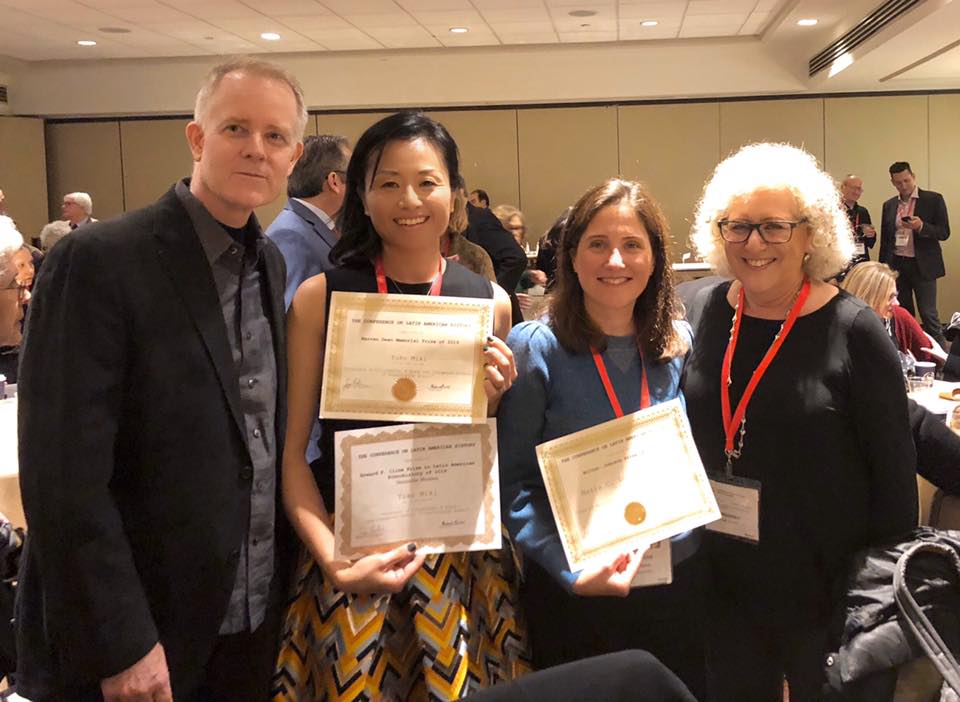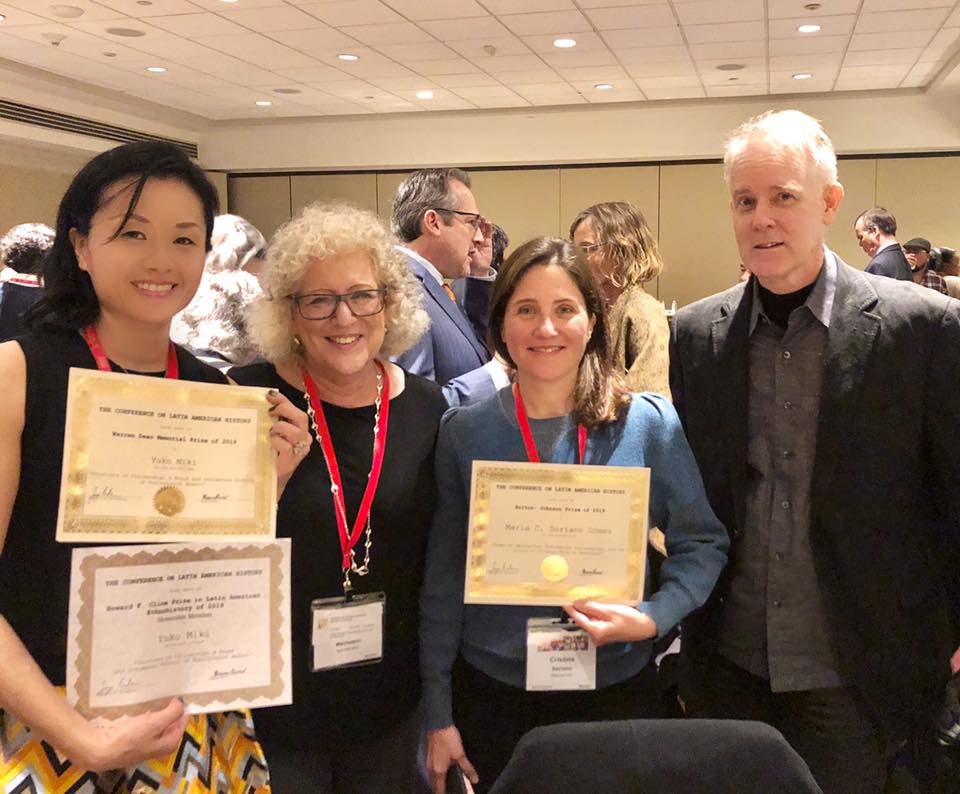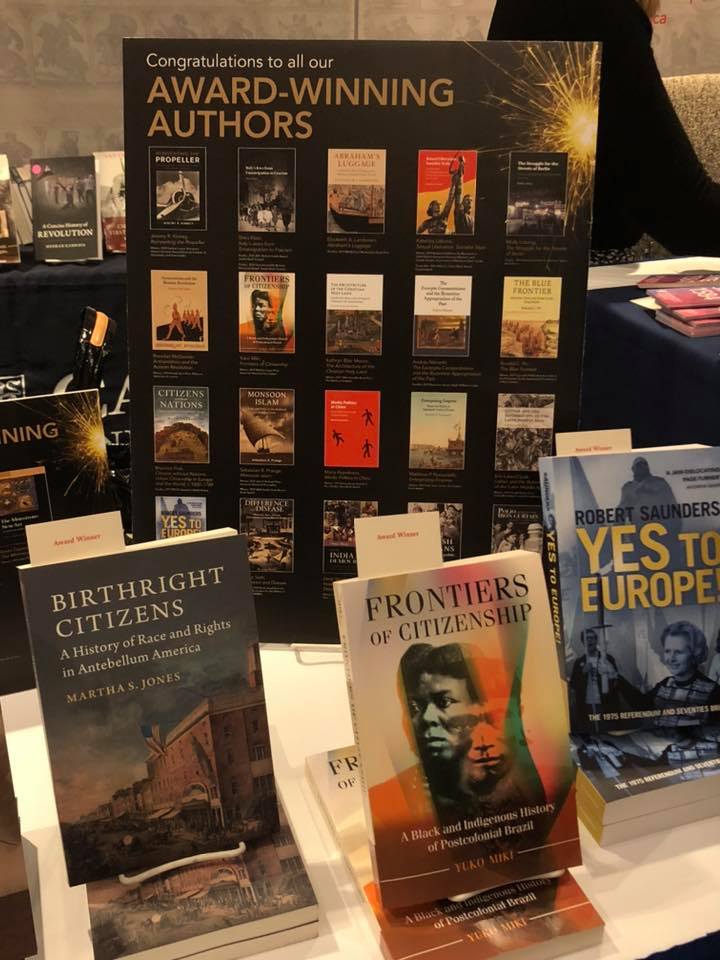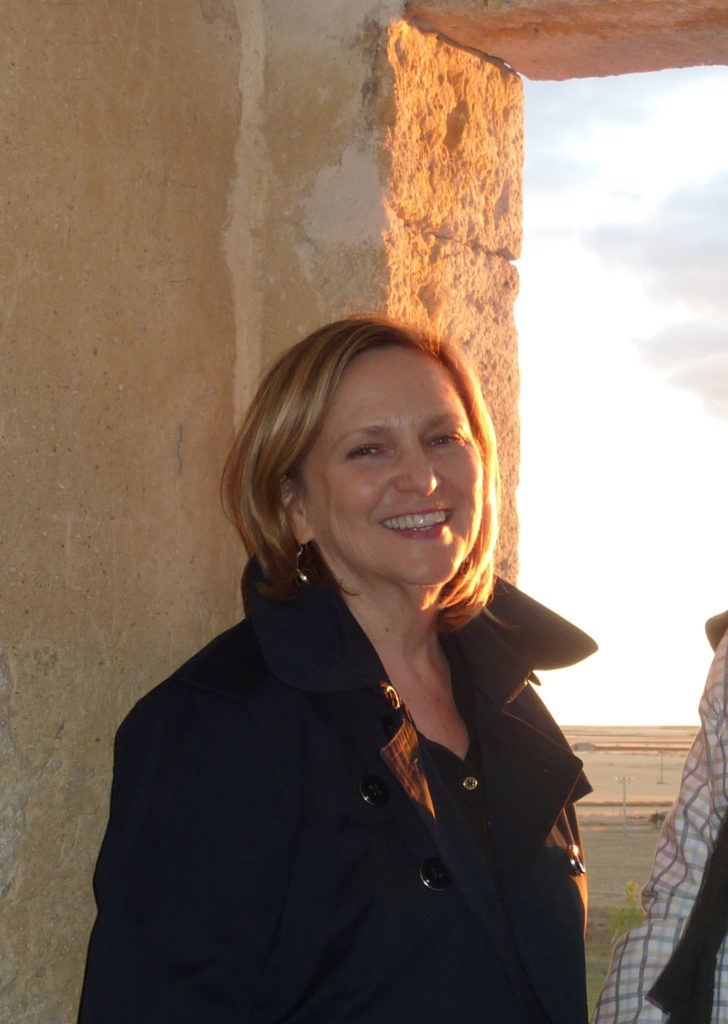Louisa Foroughi, a 2020 Ph.D. candidate, will be starting a tenure track job in Medieval and Early Modern History in the history department at Lafayette College (Eaton, PA) beginning in the 2020-21 academic year.
Working under Professor Maryanne Kowaleski, Louisa Foroughi specializes in the social and cultural history of late medieval England. Her dissertation, “What Makes a Yeoman? Status, Religion, and Material Culture in Later Medieval England,” explores identity construction among the English peasantry, c. 1348-1538. The yeomen were a group of affluent farmers who appear throughout English records from the early fifteenth century onward, but who have previously attracted little attention from medievalists. As Foroughi argues, the documentary records and manuscripts yeomen left behind provide rare insight into how medieval English peasants crafted and expressed their sense of self. Her analysis focuses on material culture, religion, office holding, and literacy as key aspects of yeoman identity, and integrates methods drawn from anthropology, archaeology, literary criticism, and religious studies in order to access the activities and mentalité of this little-studied group.
Foroughi is also eager to share her wide-ranging interests in gender studies; material culture theory; food history; medieval medicine; fiber arts; and household books and miscellanies with the students at Lafayette College. She can’t wait to join the faculty in August.
Congratulations, Louisa!






